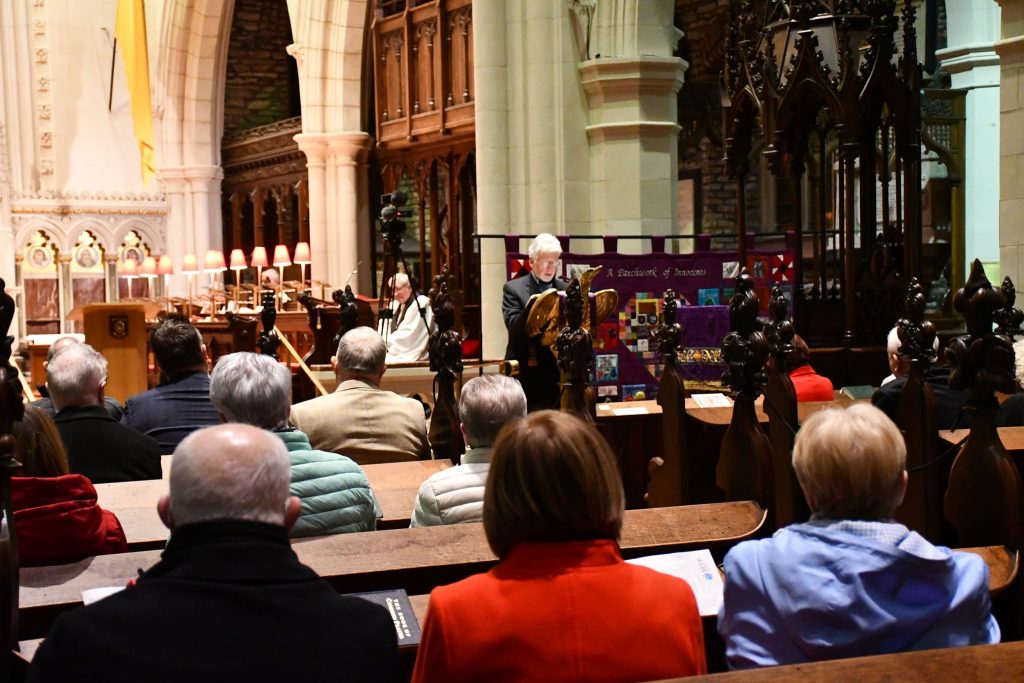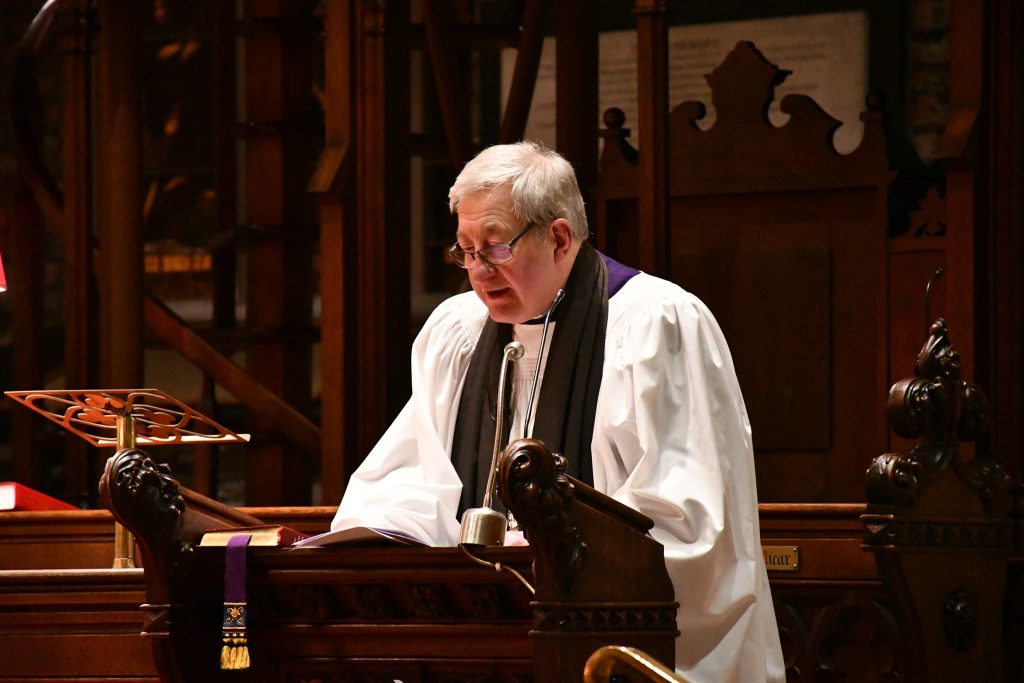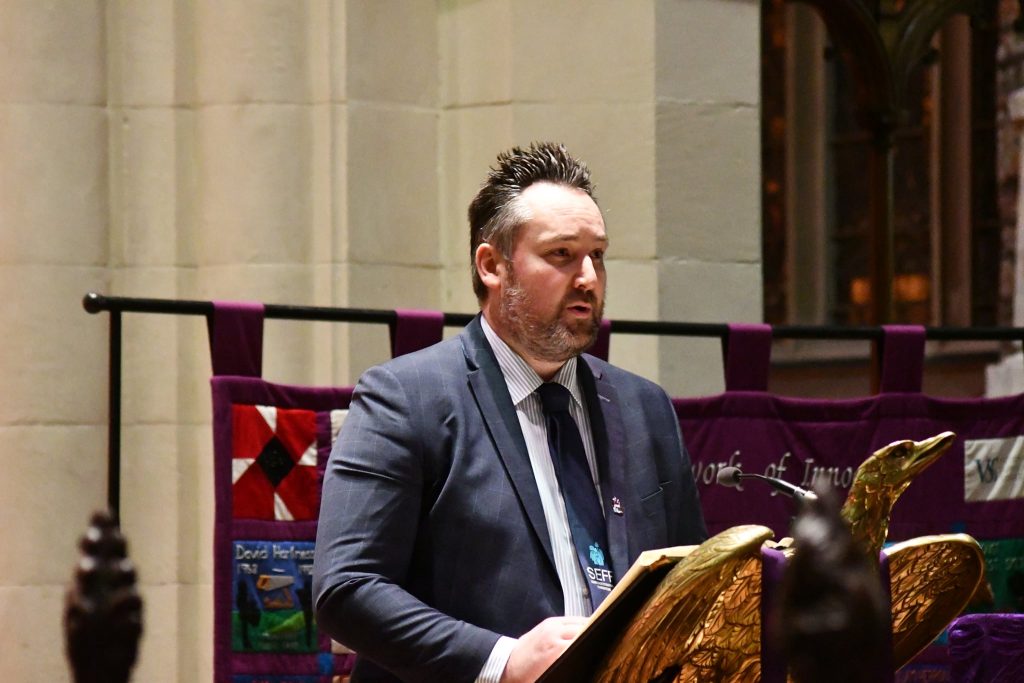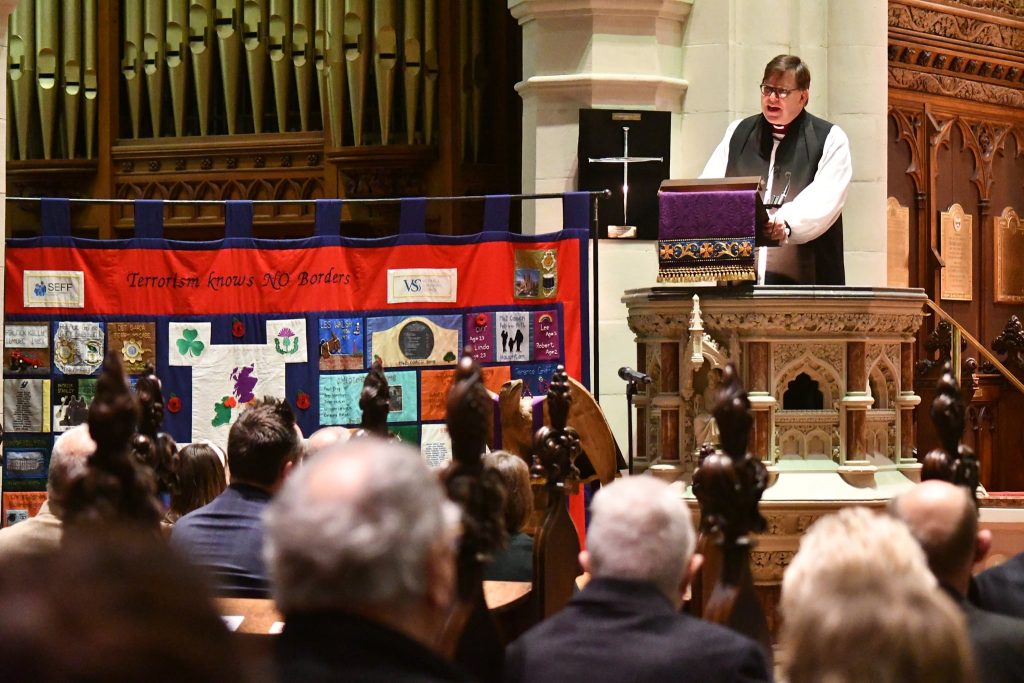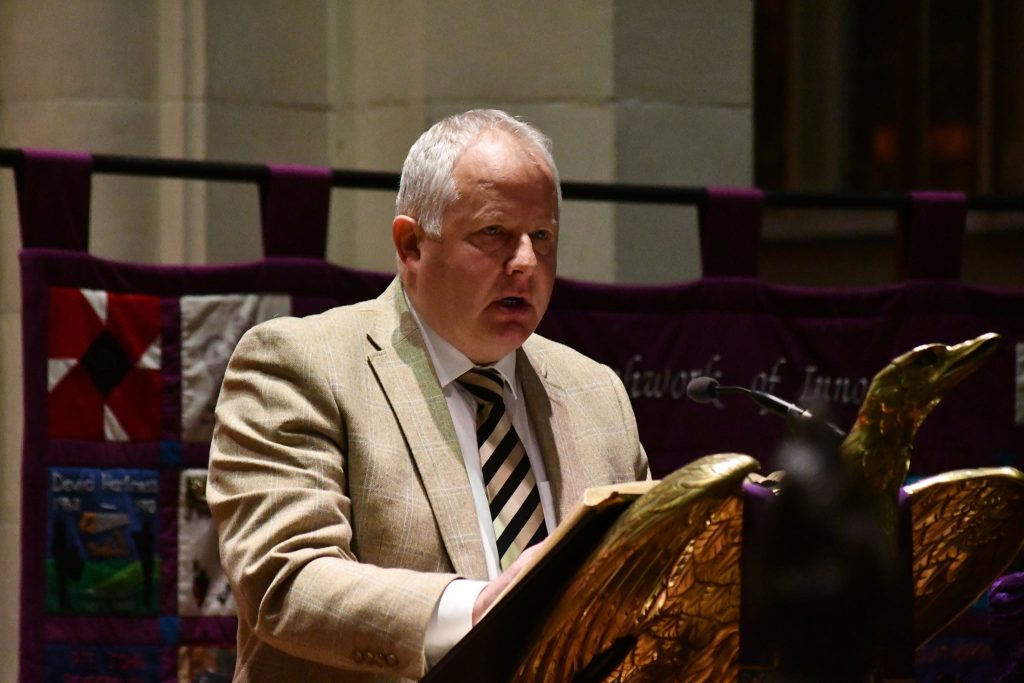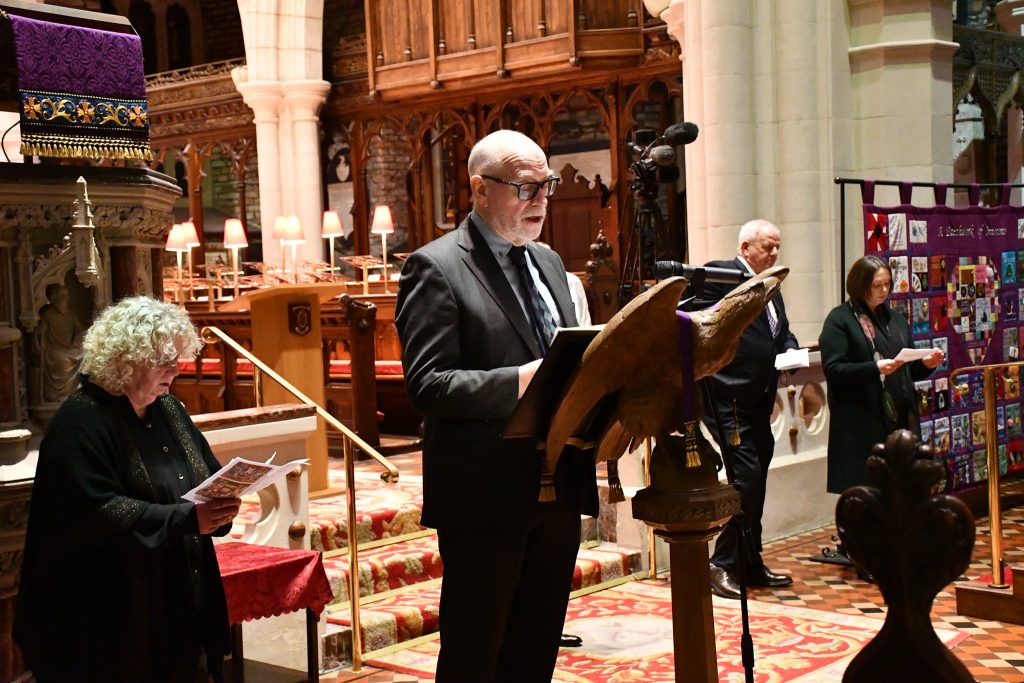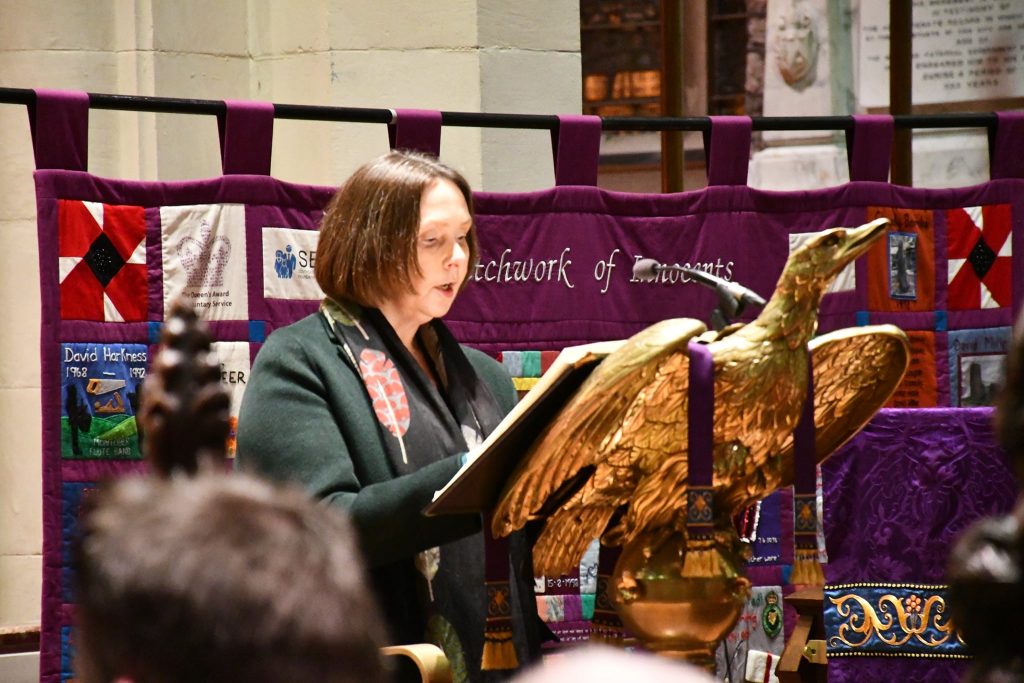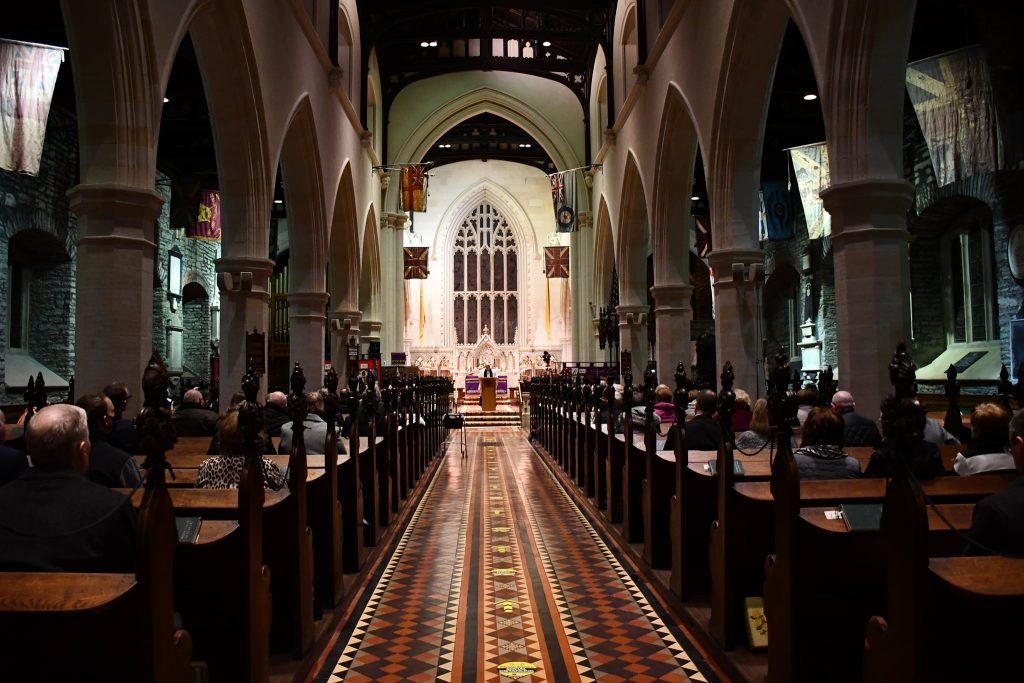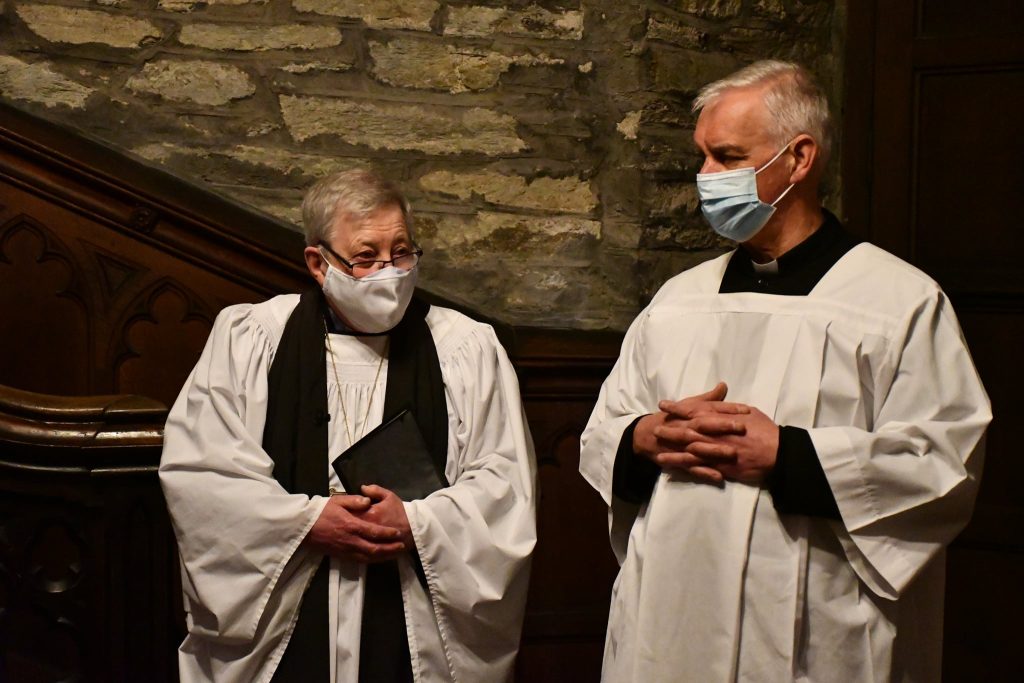Relatives who lost loved ones during the worst year of the Troubles – 1972 – took part in a Service of Remembrance and Thanksgiving in Saint Columb’s Cathedral, Londonderry on Friday the 11th March, which was organised in conjunction with South East Fermanagh Foundation (SEFF) to mark the European Day of Remembrance for Victims of Terrorism.
The Dean of Derry, Very Rev Raymond Stewart, who led the Service, welcomed those who were “parents, husbands and wives, sons and daughters” of those who were being remembered. “Many of you have carried emotional scars over many decades,” the Dean said. “In the words of the theme of this Service, I hope that the hurt you have felt and continue to feel is acknowledged, so your pain will be healed by our loving and merciful God.”
SEFF spokesman Kenny Donaldson addressed the congregation, saying the Service had come about because they were staring into 30 years of 50th anniversaries. “1972, as you painfully know, was the worst year of the Troubles in the context of the loss of human life. Almost 500 people perished as a result of those Troubles and 4,000 were injured, and I also want to say that there is a family who are contributing, tonight, and they still await even closure around that issue,” – a reference to the family of one of the ‘Disappeared’, Columba McVeigh.
Mr Donaldson said they had gathered as one in the Cathedral to send out a message of solidarity and of unity. “We come from across the religious, and no-practising, and across the political spectrum, in whatever shade you come. But as we always say within SEFF, we need to start realising, what is the ‘them and us’ within our society in Northern Ireland? Is it Protestant and Catholic? Is it Unionist and Nationalist? Or is it actually where we stand on the issue of the sanctity of human life? That surely, folks, is the real ‘them and us’.”
In his sermon, the Bishop of Derry and Raphoe, Rt Rev Andrew Forster, pointed out that the sanctuary of the cathedral had been decorated with flowers in the colours of the Ukrainian flag for Friday evening’s Service. “Of all people,” Bishop Andrew said, “you understand the anxiety, the fear, the heartache that all the people of Ukraine are going through tonight. It’s very appropriate, this evening, that we pray for them and also [that] we give to their relief later on this evening.” As they left the church, the congregation were invited to contribute to a collection which will be used to alleviate the humanitarian crisis in Ukraine.
The Bishop said he was honoured and humbled to share with people who had borne pain and heartache and grief with dignity and grace. “You have lived through years of lost experiences, of opportunities that never came, of children that were never born, of grandchildren that were never to be because of a bullet or a bomb.”
Bishop Andrew described grief as a journey without a terminal or destination. It was a journey people had to travel throughout their lives. “To be frank, as a pastor, I have stood in awe of the resilience of many people just like you who have gone on to live their lives, to bless their families and help their communities, yet I know that the years of trauma and the tears of trauma are still incredibly raw, and they are tears that never truly go away.”
The Bishop recalled some of the worst incidents from 1972’s “dastardly roll call”, names that he said were carved into the granite of our memory and etched into our collective psyche: Bloody Sunday, Aldershot, Claudy, The Abercorn, Bloody Friday. “And let me say something that all of you know only too well, that tears transcend division: there is no difference in a broken Protestant heart and a broken Catholic heart; there is no difference in the heartache and grief and tears of loss. And what we do tonight, all these years later – and what you do, I’m sure, most nights – is grieve. Tonight, we grieve together. Grief is that terrible emotion of having to say goodbye, compounded when we’re not ready to say goodbye, and multiplied when the grief is caused by the wicked and evil intent of another human being.”
The God whom they worshipped tonight was finely tuned to our hurts and fears, heartache and pain, Bishop Andrew said. “Our God is the God who comes alongside those who grieve, but – more than that – who carries us in our hurt. We grieve today and grief is that emotion that in some strange way helps us – it breaks us, but it helps us understand the depth of love that we have for that person whom we have lost. Grief writes in capital letters the word ‘Love’, because it shows us again and again the love that was given to us by the one we’ve lost, and the love that in a strange way we still give to them after all these years.”
Friday evening’s service was a ‘Service of Remembrance and Thanksgiving’. “Today, what we are thankful for,” the Bishop said, “are the gifts of God that every life lost in 1972 and all those other years of our Troubles, the gifts of God that all those lives were to families, and friends and community. I know it’s a very different context but St Paul in one of his letters wrote this: ‘I thank my God every time I remember you.’ And thankfulness, turned to prayer to God, gives us a renewed strength; thankfulness, turned to prayer to God, gives us grace and resilience for the good days and the hard days.”
During the Service, Eugene McVeigh – whose brother Columba was shot dead and buried secretly by the IRA almost 50 years ago – shared a reflection. The Old and New Testament readings were given by the brother of a murdered police officer and the daughter of a Claudy bomb victim. Other readings were delivered by people who lost loved ones in 1972 and by a former police officer who was grievously injured in an IRA booby-trap bombing in 1988.
Dean Stewart was assisted in the Service by Rev Canon John Merrick and Fr Michael Canny, and the Dean welcomed other clergy who were in the congregation.
